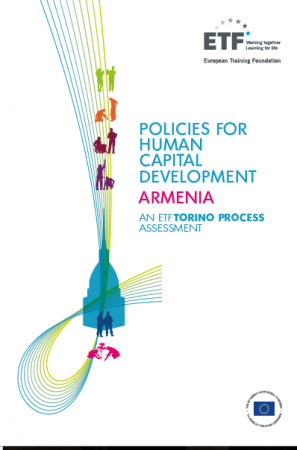The assessment finds that the upcoming revision of policies for employment and vocational education offers an opportunity for Armenia to create new synergies between employment and VET programmes and between the public and private sectors to strengthen the link between skills formation and quality employment.
The VET and employment systems could be better integrated from both programme and policy perspectives. A stronger focus on partnerships would act as a bridge to connect diverse types of skills development.
There are two main challenges: (1) lifelong learning and (2) a stronger role for VET in polices related to small businesses and employment.
Both include multiple sub-issues and challenges with ripple effects through the educational system and the labour market. The broad range of challenges includes some that will require significant time and money to address. When it comes to human capital, education and employment, the default mode puts responsibility in the hands of the public sector – just as tradition would have it. Yet, public resources are limited. Additional help must come from outside, including from the private sector.
Local circumstances may often determine what will work in certain places. The government can develop strategies and allocate resources, but support from NGOs and the private sector will be vital. That also means that some things will fall beyond the scope of government control. The government might become more of a facilitator.
